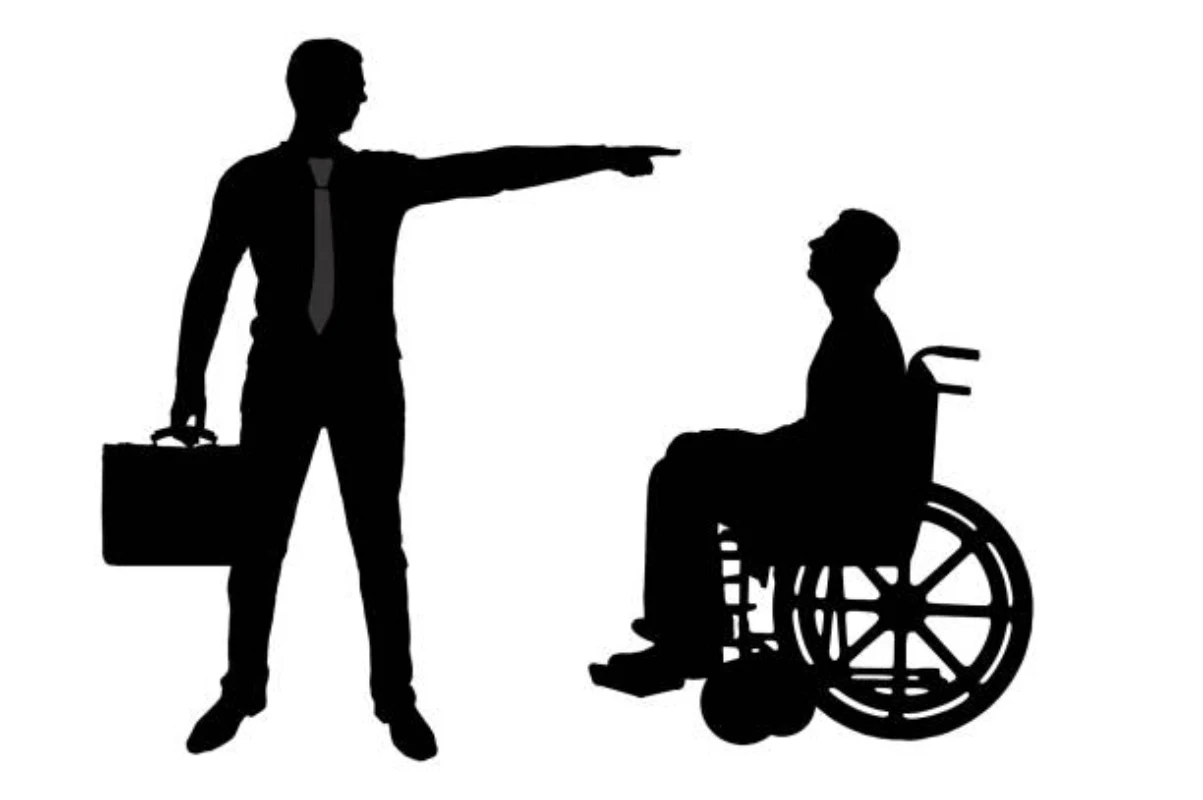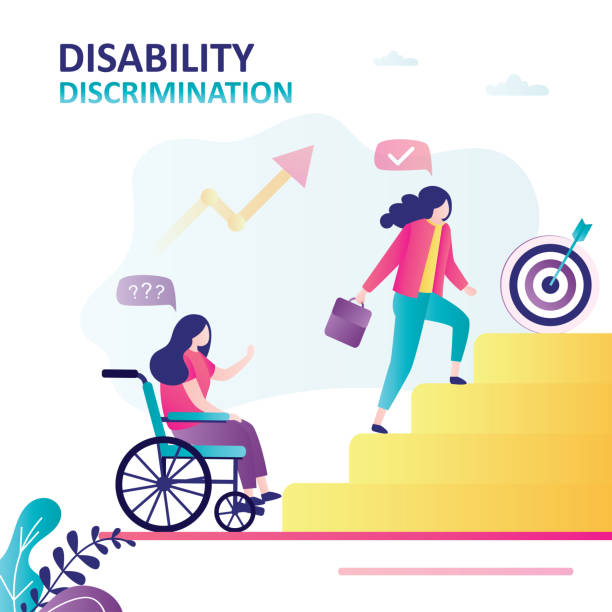Rights for Disability Discrimination – Legal Protections Explained

What is Disability Discrimination?
Disability discrimination occurs when individuals are treated unfairly because of a physical or mental disability. It can happen in various environments, including but not limited to:- Employment: Being denied a job or promotion, or not receiving reasonable accommodations.
- Education: Encountering barriers to accessing education, such as inadequate accommodations or exclusion from programs.
- Housing: Facing discrimination in renting or purchasing housing, such as being denied access because of a disability.
- Public Services: Being denied equal access to government services or public transportation.

Ready to connect with top legal professionals? Get immediate support— Call us at 877-550-8911.
Forms of Disability Discrimination
There are different ways that disability discrimination can manifest:- Direct Discrimination: This occurs when someone is treated less favorably solely because of their disability. For example, an employer refuses to hire an individual simply because they have a disability, even if the individual is qualified for the position.
- Indirect Discrimination: This form of discrimination happens when a policy, practice, or rule that appears neutral at first glance has a disproportionate negative impact on individuals with disabilities. For instance, a workplace requiring employees to stand for long periods without providing sit-stand options may unintentionally disadvantage those with mobility impairments.
- Harassment: Disability-related harassment involves offensive behavior or comments that create a hostile or intimidating environment. This can occur in the workplace, school, or other public settings.
- Victimization: Victimization refers to punishing someone for speaking out against disability discrimination or for supporting others who report discrimination. This could involve retaliation from an employer or institution.
Your Rights Under Disability Discrimination Laws
Several laws protect individuals with disabilities. Here’s what you’re entitled to:1. Right to Equal Employment Opportunities
Under the ADA, employers cannot:- Refuse to hire or promote you based on disability (unless it prevents essential job functions).
- Deny reasonable accommodations (e.g., flexible schedules, ergonomic equipment).
- Tolerate workplace harassment related to your disability.
- Fire you solely because of your disability without proper cause.
2. Right to Reasonable Accommodations
Employers, schools, and public services must provide reasonable adjustments, such as:- Modified workstations or assistive technology.
- Extended deadlines or alternative testing formats.
- Sign language interpreters or accessible communication tools.
3. Right to Access Public Services and Transportation
The ADA and Section 504 of the Rehabilitation Act ensure:- Accessible government buildings, hospitals, and transportation.
- Accommodations like ramps, elevators, and audio announcements.
- Equal treatment in public programs and services.
4. Right to Fair Housing
The Fair Housing Act prohibits disability-based housing discrimination. Landlords must:- Allow service animals, even in “no-pet” properties.
- Permit reasonable modifications (e.g., grab bars, wheelchair ramps).
- Avoid discriminatory rental or lending practices.
5. Right to an Education Without Barriers
Students with disabilities are protected under IDEA and Section 504, ensuring:- Individualized Education Programs (IEPs) for K-12 students.
- Accommodations in higher education (e.g., extra exam time, note-takers).
- Protection from segregation or exclusion.

How a Disability Discrimination Lawyer Can Help
Legal professionals play a crucial role in fighting discrimination by offering:1. Legal Advice and Representation
A lawyer explains your rights under the ADA, Fair Housing Act, or Rehabilitation Act and guides you through filing complaints with agencies like the EEOC or HUD.2. Assistance with Complaints and Lawsuits
If informal resolutions fail, a lawyer can help file a lawsuit seeking compensation for lost wages, emotional distress, or punitive damages.3. Negotiating Accommodations
If an employer or institution refuses reasonable adjustments, legal intervention can enforce compliance.4. Evidence Collection
Lawyers gather medical records, witness statements, and correspondence to strengthen your case.5. Court Representation
If litigation is necessary, a lawyer will advocate for you in court, ensuring your rights are upheld.Steps to Take If You Face Disability Discrimination
- Document Everything – Keep records of discriminatory actions, including dates, witnesses, and communications.
- Report the Issue – Notify HR, school administrators, or landlords in writing.
- Request Accommodations – Submit a formal request; if denied, this strengthens your case.
- Consult a Lawyer – A disability discrimination lawyer can assess your legal options.
- File a Complaint – If unresolved, file with the EEOC, HUD, or Department of Education.
FAQs
1. What qualifies as a disability under the ADA? The ADA defines a disability as a physical or mental impairment substantially limiting major life activities, including chronic conditions like diabetes, PTSD, or mobility issues. 2. How long do I have to file a disability discrimination claim? For workplace claims, you typically have 180 days (or 300 days in some states) to file with the EEOC. 3. Can I be fired for having a disability? No, unless your disability prevents you from performing essential job duties even with accommodations. 4. What if my employer refuses reasonable accommodations? You can file an EEOC complaint or lawsuit. Employers must provide accommodations unless it causes undue hardship. 5. Do disability discrimination laws apply to small businesses? The ADA applies to employers with 15+ employees, but state laws may cover smaller businesses.Don’t wait to secure the legal representation you deserve. Visit Legal Case Review today for free quotes and tailored guidance, or call 877-550-8911 for immediate assistance.


